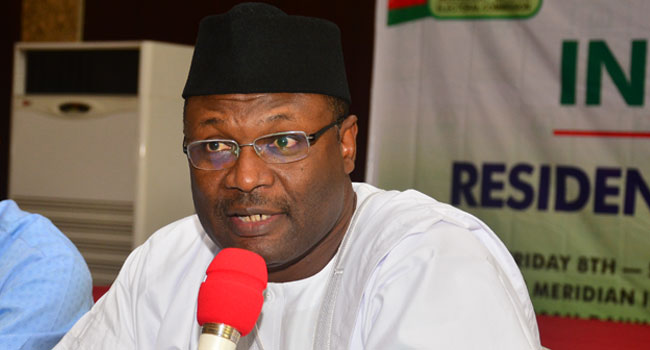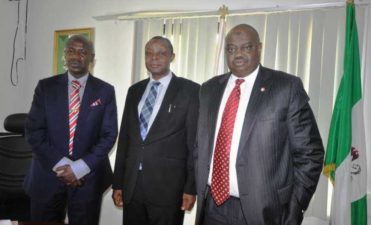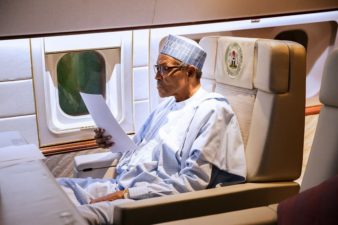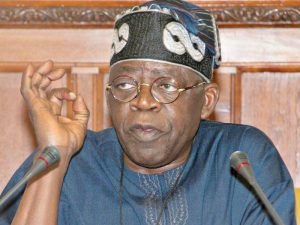*Says it will enforce policy with DSS, EFCC, others
*Commission determined to track campaign expenditure by politicians – Yakubu before, during polls
*Banks to report all suspicious transactions ahead of elections or gets prosecution
By BASHIR ADEFAKA
As the race for who becomes Nigeria’s President and governors of Federating units as well as other leaders is expected to hold in about 13 and 15 months time from now, the Independent National Electoral Commission (INEC) appears to have gotten its bearing with how to achieve a voting process that is not only free and fair but also without the influence of money.
This was as the INEC declared readiness to enforce its policy that seeks to know how political parties and candidates raise money and distribute same for election electioneering campaigns.
To make this happen, INEC Chairman, Prof. Mahmood Yakubu, said Friday that the Commission intended to carry out the task in collaboration with the Central Bank of Nigeria (CBN), the Department of State Services (DSS), the Economic and Financial Crimes Commission (EFCC), the Independent Corrupt Practices Commission (ICPC), and commercial banks in the country.
Prof. Yakubu disclosed this while addressing The Electoral Forum’s policy roundtable meeting on political campaign funding in Abuja (TEF).
At a separate forum Friday, the INEC Chairman said 8,260,076 eligible Nigerians had completed the online and physical registration with students and other young Nigerians between the ages of 18 and 34 dominating the ongoing voter registration.
Yakubu, who was represented at the policy roundtable conference by the National Commissioner and Chairman Committee on Party Monitoring, Prof. Kunle Ajayi, said the Commission was determined to track and ascertain campaign expenditure by politicians before and during the elections.
The commercial banks will be required to report all suspicious transactions ahead of the elections.
Failure to report any such suspicious transactions, he said, would attract prosecution.
“As long as we have not notified anybody that the race to the 2023 general election has started, we are not unaware of what anybody is doing. We follow the law strictly,” Yakubu said.
He added: “We have not officially declared a notice for the 2023 general elections. But when we so declare, we will put our monitoring committees to motion, like the Central Bank of Nigeria, DSS, EFCC, the ICPC (commercial) banks, and other law enforcement agencies. We have that plan already.
“Every candidate must be made to declare his bank asset; that is where they draw out their money. So we will make them present their statements of account right from the onset.
“We will make it mandatory for them to turn in their bank statement so that if they say they are doing billboard and the account remains the same, then there is a problem.”
The commission also plans to check vote buying, according to Yakubu, who said: “We are going to establish finance monitoring teams and they will be among the electorate but they (politicians and political parties) won’t know.
“We are going to do it in a way that the influence of money will be reduced, because we want to make the electoral field a level playing ground for both rich and poor candidates and the electorate.
“Everybody will go on an equal economic level so that you won’t influence the voting pattern.”
His immediate predecessor, Prof. Attahiru Jega, who contributed from abroad, described lack of accountability and transparency in political campaign financing as key factors responsible for some challenges facing Nigeria’s electoral system.
His words: “If we insist on accountability, then you can begin to somehow sanitise the way political parties raise funds. I think what has happened is that we paid too much attention to the issue of electronic transmission of results, and somehow they quickly passed the Sections about raising the threshold. The civil societies did not pay much attention in their advocacy against this particular issue.
“Nevertheless, I wouldn’t advise or recommend that we delay the passage of the Bill on account of this particular issue. What we should be exploring are ways and means of ensuring that there is accountability about how these funds are raised and the spending ceiling is met as well as how the expenditure is done.”




